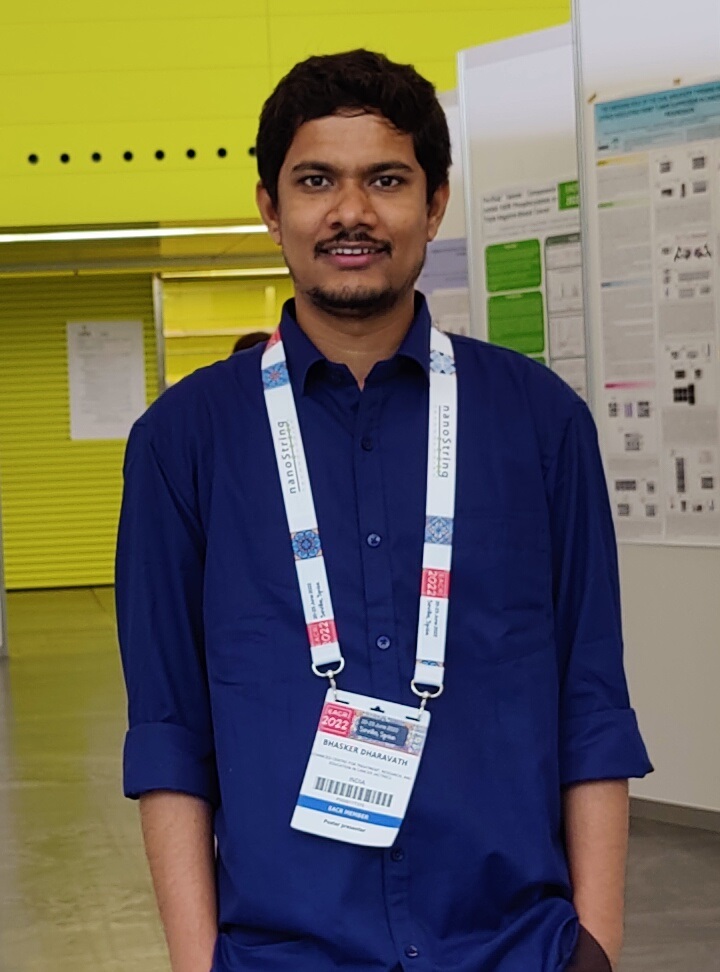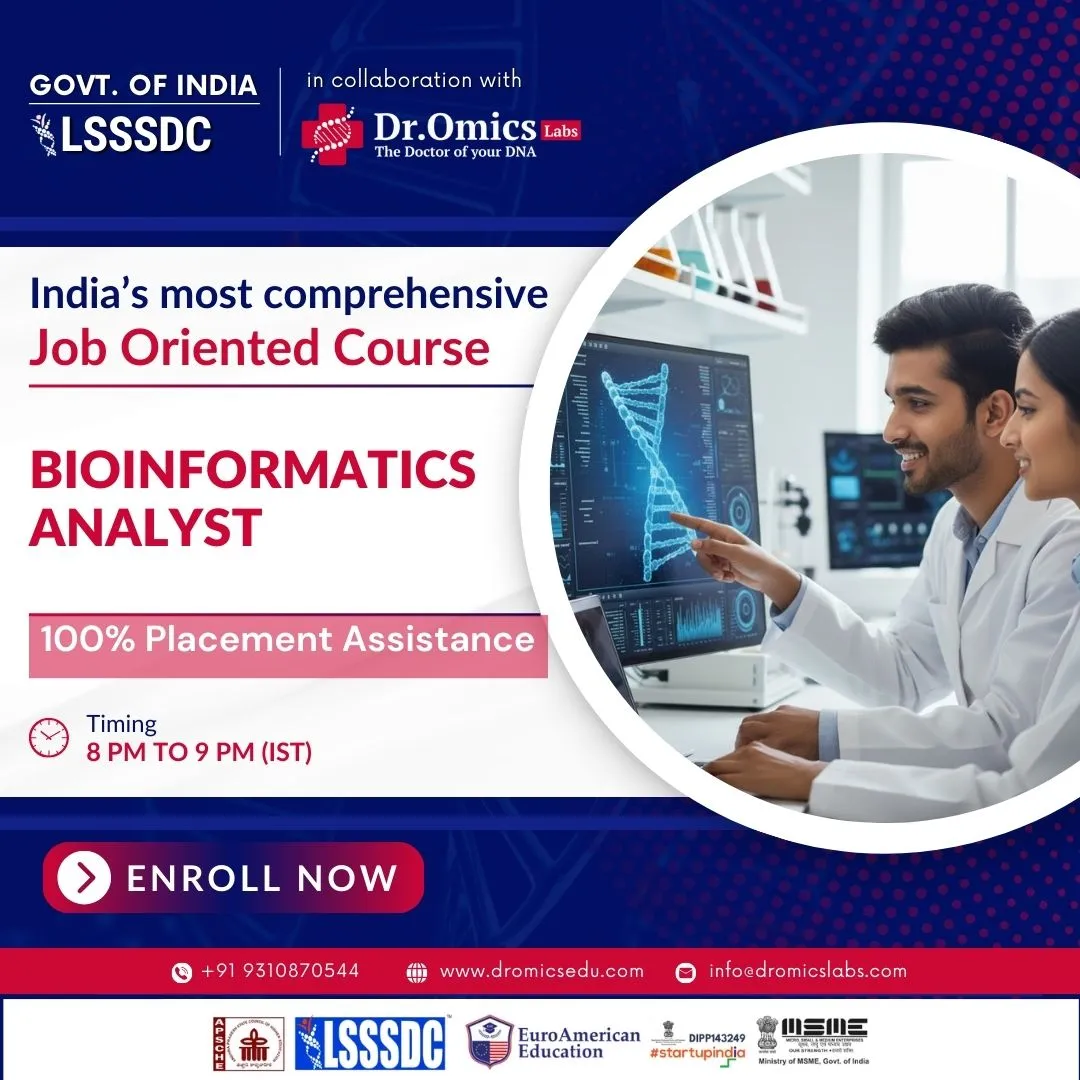Work done in the lab of Dr. Amit Dutt at Tata Memorial Centre-ACTREC, Navi Mumbai
About author

Bhasker Dharavath obtained his Integrated M.Sc. in Systems Biology (2011-16) from School of Life Sciences, University of Hyderabad, Hyderabad, Telangana. Currently, he is pursuing his Ph.D. under the guidance of Dr. Amit Dutt in Integrated Cancer Genomics Laboratory at Tata Memorial Centre-Advanced Centre for Treatment Research and Education in Cancer (TMC-ACTREC), Navi Mumbai. His doctoral research work in Dr. Amit Dutt lab at ACTREC focuses on identification and functional characterization of molecular biomarkers in tongue cancer using computational and functional genomics approach.
Interview
How would you explain your research outcomes to the non-scientific community?
Tongue cancer is a type of oral cancer that forms in the front two-thirds of the tongue. A high prevalence of tobacco and alcohol use, as well as a low accuracy in detecting its spread in the early stages are the factors that contribute to the high incidence of tongue cancer in India. About 30% of tongue cancer patients develop occult (hidden) metastases or a subclinical disease spread to surrounding lymph nodes. This reduces their chances of survival. The risk for nodal metastases is assessed by physical examination and by imaging tests like CT or MRI scans. However, these techniques in practice are unreliable and likely to miss the detection of occult lymph node metastases. Due to its inaccuracy in finding occult metastases, treatment options for tongue cancer patients include the surgical removal of lymph nodes together with the primary tongue tumour. However, surgical removal of lymph nodes is linked with severe morbidity and is unnecessary in about 70% of patients without nodal metastases. Hence, precise prognostic indicators to predict the possibility of metastases in these individuals is a huge unmet need.
In this study, we identified a predictive biomarker for the identification of tongue cancer patients with lymph node metastasis in the early stage of the disease. We found that a protein called Matrix metalloproteinase-10 (MMP10) is over-expressed in 86% of tongue cancer patients with lymph node metastases. This means that measuring MMP10 expression could be used to predict the likelihood of lymph node metastases in these patients, sparing 70 to 80% of patients from morbid neck dissection (surgical removal of lymph nodes). We also identified a microRNA, miR-944, that negatively affects the levels of MMP10 by directly binding to the regulatory region of the gene and interfering with its molecular processing. Using biochemical and cell-based experiments, we also showed that low levels of MMP10 protein or higher expression levels of miR-944 inhibit the proliferation, migration and dissemination of tongue cancer cells. We verified these findings by using a complex orthotopic tongue cancer mouse model. Through the study of mouse tongue cancers, it was possible to demonstrate that decrease of MMP10 in mouse tongue tumours prevented lymph nodes and distant metastases. We also found that MMP10 regulates metastasis of tongue cancer cells by upregulating genes essential for epithelial-mesenchymal transition, importantly, a tyrosine kinase gene, AXL, which mediates nodal and distant metastasis. Consistent with these findings, a study of oral cancer data from the Caucasian population reveals that overexpression of MMP10 or AXL correlates positively with poor survival in individuals with tongue cancer.

Overall, our findings demonstrate that the miR-944/MMP10/AXL– axis underpins lymph node metastases in tongue cancer. And screening for expression of miR-944 or MMP10 could serve as prognostic biomarkers for the prediction of nodal metastases in tongue cancer and aid in the elimination of misdiagnosis, sparing 70 to 80% of patients from morbid neck dissection. These findings may enhance the treatment and prognosis of patients with tongue cancer.
How do these findings contribute to your research area?
The findings from this study can help clinicians to decide on the best course of therapy for tongue cancer patients. Early detection of MMP10 in tongue cancer patient samples, such as saliva or oral mucosa, could indicate the presence of a disease or condition in its early stages. If validated this can be used as part of an oral screening programme to help detect diseases or conditions early on, when they are most likely to be treatable.
“The findings from this study can help clinicians to decide on the best course of therapy for tongue cancer patients.”
What was the exciting moment during your research?
This study includes three different aspects of the research area, which are in vitro (cell-based), in vivo (mouse models) and immunohistochemical (clinical sample-based) assays. The three aspects were independently studied by three different researchers. It was very exciting to see that the results from all aspects were consistent. Also, learning that the findings from the study will be used for an upcoming clinical trial at the Tata Memorial Hospital (Mumbai) is highly encouraging.
What do you hope to do next?
I aim to further extend my knowledge in functional genomics to solve the unmet challenges in the field of cancer. Particularly, I am interested in applying genomic approaches to aid in the identification of biomarkers, which may help in the early detection of the disease and its progression.
Where do you seek scientific inspiration from?
I seek my scientific inspiration from my teachers (G.V. Rama Rao and K.V.S.S. Ganesh) and my Ph.D. mentor (Dr. Amit Dutt). Their hard-working nature and sincerity for the work has always inspired me to pursue research. Also, pursuing PhD in a cancer hospital (Tata Memorial Centre-ACTREC) gives an opportunity to interact with the cancer patients and learn about the morbidities associated with the disease. Many times, their fight with cancer inspires me to pursue research in the area of cancer biology.
How do you intend to help Indian science improve?
In my opinion, science can advance with collaboration between scientists from different domains like basic, clinical and industrial background. After completion of my post-doctoral studies, I plan to continue my career in Indian academia and collaborate with scientists from different disciplines to improve the scientific environment in India.
Reference
Dharavath, B., Butle, A., Pal, A. et al. Role of miR-944/MMP10/AXL– axis in lymph node metastasis in tongue cancer. Commun. Biol. 6, 57 (2023). https://doi.org/10.1038/s42003-023-04437-6. PMID: 36650344. https://www.nature.com/articles/s42003-023-04437-6
Copy Editor: Nikita Nimbark
For interview related queries, write to us at interview.biopatrika@gmail.com




